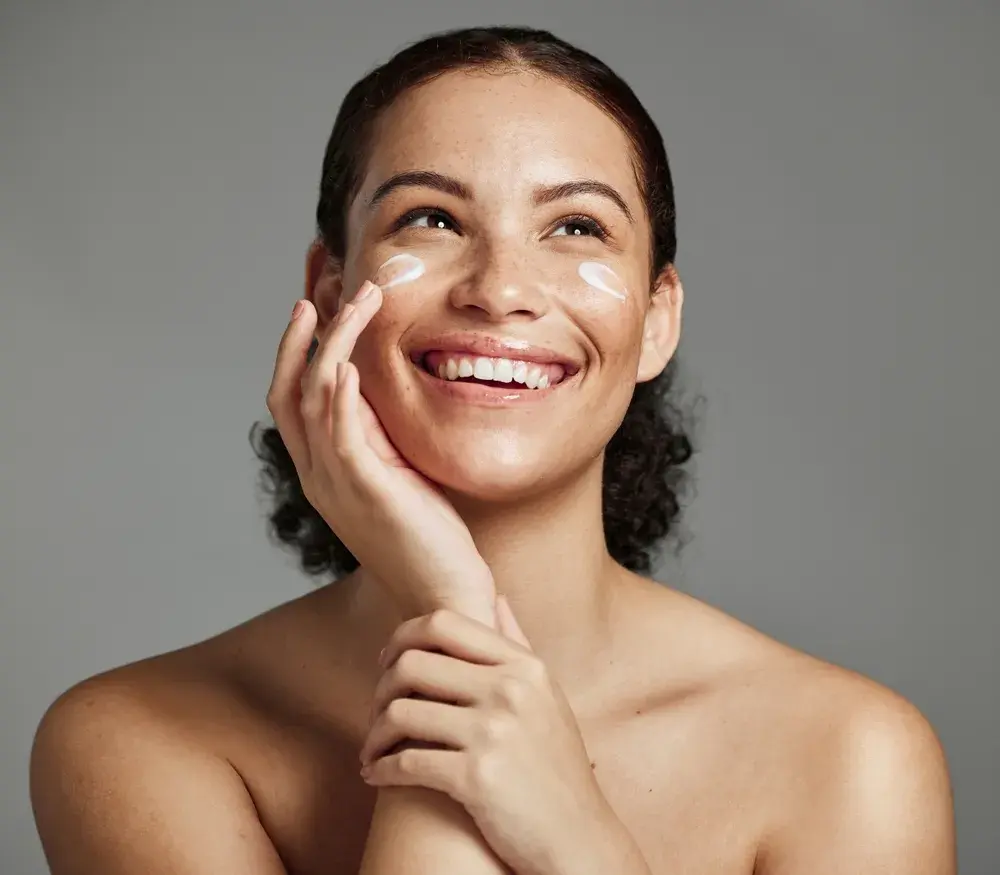What Are Antioxidants?
When you hear "antioxidants," healthy plant foods like fruits and vegetables might come to mind. That's because these foods are rich in antioxidants, which are key players in your overall health. These mighty molecules possess a chemical property that helps protect your skin from oxidative stress while neutralizing free radical damage on your body and skin.
For this reason, antioxidants benefit your skin health, too. But what exactly are antioxidants? Is vitamin E an antioxidant? What about other vitamins? Here are a few examples of antioxidants you might see on a skincare product label.
Vitamin C
Vitamin C is the most abundant antioxidant in the skin. That said, the human body can't synthesize it on its own, and it's not as biologically available as you might like it to be (meaning your body only absorbs a small fraction when you eat vitamin C-rich foods or supplements). That's why applying skincare products with vitamin C topically is necessary to reap the benefits, like minimizing visible signs of skin aging and discoloration.
Vitamin C is also known to stimulate collagen synthesis, the protein that keeps your skin firm.
Vitamin E
Vitamin E is one of the most documented antioxidants, commonly used for its proven effect on protecting skin from ultraviolet (UV) damage. Vitamin C boosts these effects, leveraging their combined antioxidant powers to reduce your skin's reaction to sunburn. Research also shows that vitamin E can reduce eczema symptoms.
Ferulic Acid
Ferulic acid is a plant antioxidant often combined with vitamin C and vitamin E to improve chemical stability and effectiveness. Ferulic acid protects your skin's collagen, elastin and fibroblasts (cells that help form connective tissue).
Some other common antioxidants in skincare include retinol (vitamin A), niacinamide, curcumin, resveratrol and botanical extracts like green tea and coffee.
What Are the Uses of Antioxidants?
So, what are antioxidants used for in the skincare world? Antioxidants in skincare help maintain skin health and prevent premature skin aging by protecting it from oxidative stress from UV rays, pollution and other environmental aggressors.
Sustained free radical damage impacts your skin's healthy function. Over time, this damage contributes to wrinkle formation, dryness, loss of elasticity, uneven skin tone, discoloration (like melasma and hyperpigmentation), and even slower wound healing. Antioxidants are your defense against these harmful free radicals, neutralizing their effects to reduce or prevent assault on your skin at a cellular level.
Where Do Antioxidants Come From?
Antioxidants are found in nature, particularly in colorful fruits and vegetables. Plants synthesize fat-soluble vitamin E. The richest food sources of vitamin E are nuts, sunflower oil, olive oil, whole grains and spinach.
Vitamin C is famously found in citrus fruits like oranges and grapefruit but also in red peppers, berries, tomatoes and cruciferous vegetables like broccoli and cabbage. Ferulic acid can be found in foods like tomatoes, sweet corn and rice bran, to name a few. You can also get antioxidants through supplements like Neutrogena® Clear Complexion Antioxidant Gummies.
While you can get antioxidants through a nutritious, balanced diet, you can also apply them topically through serums and creams for a skincare benefit boost.
How To Incorporate Antioxidants Into Your Skincare Routine
It's easy to incorporate antioxidant skincare into your daily routine. Here are some tips.
Start the Day With an Antioxidant-Packed Sunscreen
Level up your daily protection against UV damage with Neutrogena® Hydro Boost Hyaluronic Acid Moisturizer SPF 50. This do-all daily facial moisturizer is formulated with vitamin E to defend your skin from daily environmental aggressors and boost skin hydration.
Another great pick to protect and pamper your skin? Neutrogena® Invisible Daily Defense Serum. This multitasking face serum and sunscreen lotion make a truly dynamic duo, developed with broad-spectrum SPF 60 protection and antioxidants to prepare your skin for whatever comes its way.
Try a Skincare Product With Vitamin C
Vitamin C is a popular antioxidant in skincare, addressing everything from dark spots to skin laxity. Try a product with vitamin C and retinol a few days a week for firmer, brighter-looking skin. For example, Neutrogena® Rapid Tone Repair Retinol + Vitamin C Dark Spot Corrector helps fade stubborn dark spots and uneven skin tone for a more even, radiant complexion.
Slather on a Moisturizing Night Cream
To nourish and defend your skin while you snooze, try Neutrogena® Hydro Boost Night Pressed Face Serum With Hyaluronic Acid. This antioxidant-supercharged formula instantly hydrates the skin's surface and restores the skin barrier overnight so you wake up to refreshed, moisturized skin.
Consider an Eye Cream
Caffeine might be part of your morning ritual — but have you ever considered using it on your skin? Incorporating a targeted formula to address skin concerns around the delicate eye area can help reduce the look of dark circles and under-eye puffiness. Apply Neutrogena® Hydro Boost+ Caffeine Eye Gel Cream morning and night for best results.





